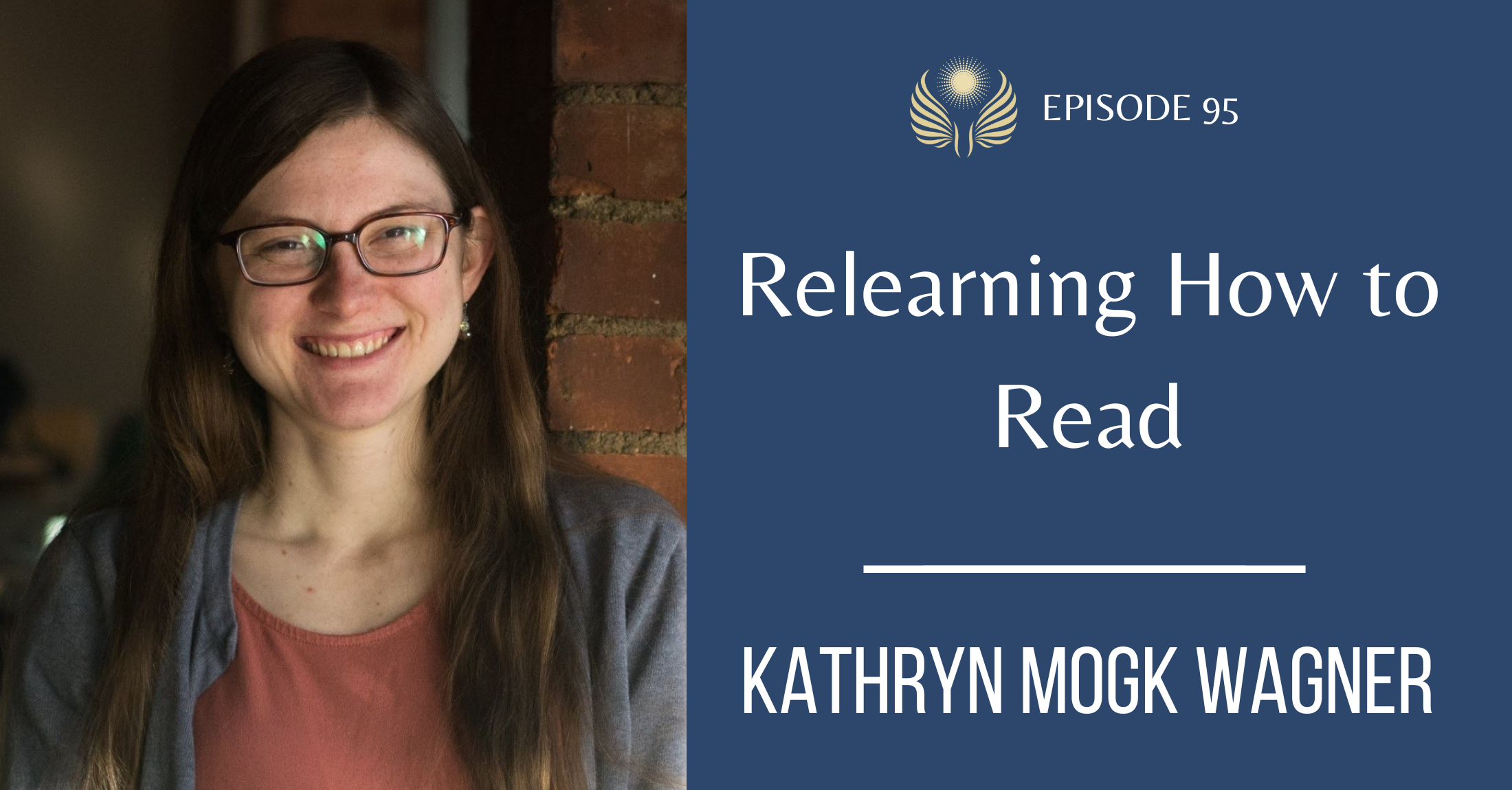Episode 95
Does it take a trained expert to read books in our own language? The heart of English departments around the world is the love of amateurs, yet that heart seems to be gradually shrinking, replaced more and more with cold technical literary analysis. Kathryn Mogk Wagner identifies this as the reason English Departments themselves are shrinking too.
Literary analysis is shutting out truth and reading for edification, turning instead to niche readings and unique techniques. Can a culture raised on suspicion re-learn how to read the great texts for truth not tetrameter? Is there a balance between reading holiness and historicity in a text? Can ivory tower English professors read a book for edification instead of interpretation? In this episode, Mogk Wagner teaches us to return to the roots of reading – to relearn how to read.
00:00 Preview of the discussion to come.
00:34 An introduction to the episode and to Kathryn Mogk Wagner.
02:06 Kathryn reads her paper “Relearning How to Read.”
12:08 St. Augustine was not that different from us, and studying his methods of reading can improve our own.
16:37 Augustine’s world was full of distracting immoral entertainment much like our own, and therefore his methods serve as an excellent model for our own age.
19:48 “It is important for teachers to engage with where their students are at and introduce the text to them in such a way as to make it relevant to the student.”
29:34 There is an important dual meaning to the word amateur.
32:41 St. Augustine rewrites Plato’s theory of the forms with a Christian flavor, such that all knowledge is a participation in the Logos, the Son of God.
37:02 “Poetry is this perfect balance… It's a kind of incarnate philosophy, that is the best tool for forming our character by appealing to our desire.”
40:44 While the art of reading literature well seems to be dying in the universities, it is thriving in non-academic settings.
44:54 There are various methodologies one can use in order to re-learn how to read.
Links:
Weston’s book recommendation: The Portal of the Mystery of Hope.
St. Augustine’s principles for teaching.
“Poetry” by Marianne Moore with poetry as philosophy incarnate.
Reflections on the Right Use of School Studies with a View to the Love of God
10 book recommendations for Catholics
“Ever Learning, Ever Loving: Augustine on Teaching as Ministry”

